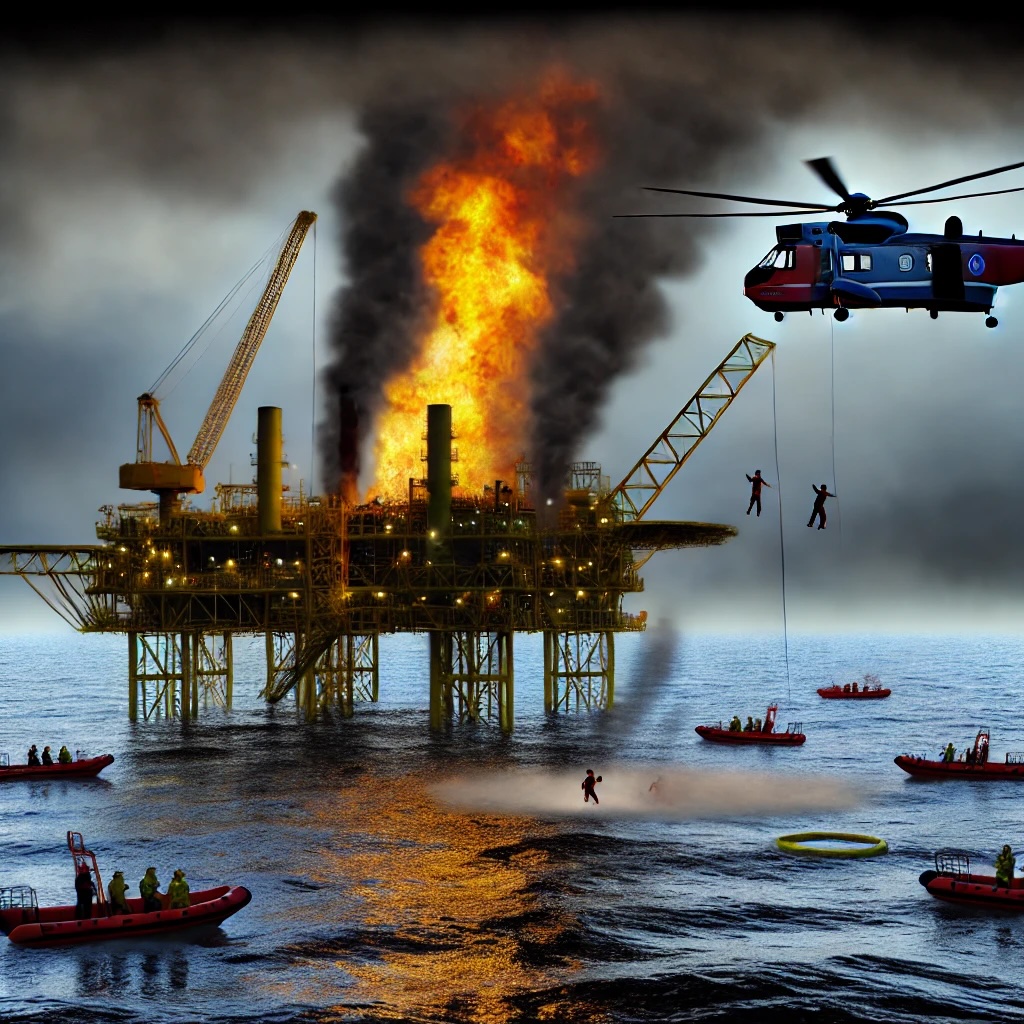Piper Alpha Disaster
One of the most harrowing offshore oil rig accidents occurred in the North Sea on July 6, 1988, known as the Piper Alpha disaster. The incident remains one of the deadliest oil rig accidents in history, claiming 167 lives. The story of the Piper Alpha disaster is not just one of tragedy but also of remarkable teamwork and resilience in the face of unimaginable odds.
The Incident
Piper Alpha was an oil production platform located approximately 120 miles northeast of Aberdeen, Scotland. The disaster began with a routine maintenance operation. A safety valve had been removed from a gas compression pump for servicing, but due to a miscommunication during a shift change, the pump was mistakenly restarted without the safety valve in place. This led to a gas leak, which ignited, causing a massive explosion.

The initial explosion was followed by a series of fires, which spread quickly due to the oil and gas being processed on the platform. Within minutes, the entire rig was engulfed in flames, and the heat was so intense that it melted parts of the rig’s steel structure.
Teamwork and Resilience
Amid the chaos, acts of extraordinary bravery and teamwork emerged. The platform’s firefighting systems failed almost immediately, leaving the crew with few options. However, many of the crew members banded together to try and control the situation.
One such story involved a group of men trapped in the control room, cut off from escape routes by the raging fires. Realizing that help might not come in time, they decided to try and make their way to the lifeboat stations, despite the overwhelming heat and smoke. Supporting each other physically and emotionally, they navigated the perilous corridors of the rig, with some using fire hoses to try and cool down the metal surfaces that were too hot to touch.
Another group, led by the platform’s radio operator, continued to send distress signals even as the flames encroached. They knew that staying at their posts would likely cost them their lives, but their efforts ensured that rescue helicopters were dispatched as quickly as possible, saving many lives.
Meanwhile, in the surrounding waters, a remarkable display of teamwork unfolded as crews from nearby rescue vessels and helicopters worked tirelessly to save as many people as possible. The Sea King helicopters, piloted by RAF and Coast Guard crews, braved the thick smoke and intense heat to hover over the rig, lowering winchmen to pluck survivors from the decks.
Rescue and Aftermath
Despite the heroism displayed, the scale of the disaster was enormous. Of the 226 men on board, only 61 survived. Many of those who did survive did so thanks to the courage and resilience of their fellow crew members, who refused to abandon each other even in the face of almost certain death.
The Piper Alpha disaster led to significant changes in offshore safety regulations. The inquiry that followed highlighted the critical need for better communication, more effective safety systems, and a greater emphasis on the human element of safety.
The memory of Piper Alpha serves as a stark reminder of the dangers inherent in offshore oil production but also as a testament to the strength of the human spirit when faced with adversity.